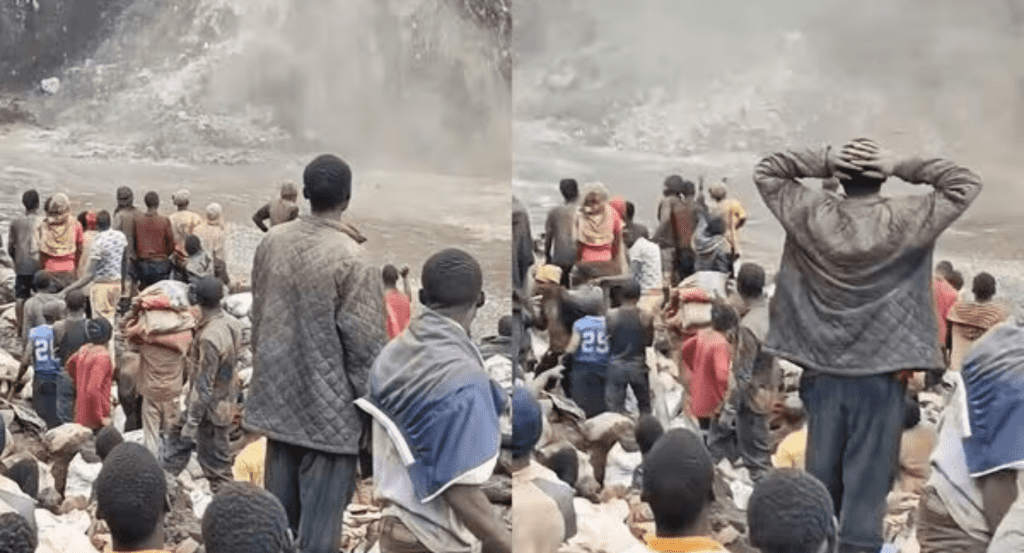A dramatic natural event occurred in the Democratic Republic of Congo (DRC), where a mountain collapse revealed massive quantities of copper, stirring excitement and speculation among local communities and global observers. The incident has captured significant attention, highlighting the mineral-rich nation’s potential to leverage its resources for economic transformation.
The collapse, which took place in a remote area, exposed extensive copper deposits. Footage and images of the discovery quickly went viral, drawing both awe and concern from netizens. Many celebrated the newfound wealth, viewing it as an opportunity for local communities to benefit. However, concerns have also emerged regarding the potential exploitation of these resources by external actors, given Congo’s history of foreign interference in its mining sector.
Observers noted that the event underscores Congo’s position as one of the most resource-rich countries in the world. The DRC already holds a significant share of global reserves of critical minerals such as cobalt, copper, and gold, essential for industries ranging from electronics to renewable energy.
However, managing these resources has often been fraught with challenges. Corruption, lack of infrastructure, and the involvement of foreign companies in exploitative mining practices have limited the benefits to the Congolese people. The fear expressed online—that this discovery might attract undue foreign attention and exploitation—is not without precedent.
Local authorities are reportedly assessing the situation and its potential implications for the region’s economy. Experts suggest that with proper governance and transparent policies, the newfound copper reserves could significantly contribute to national development, creating jobs and improving infrastructure.
As discussions about resource ownership and control intensify, many are urging the Congolese government to ensure that local communities reap the benefits of this discovery. Additionally, activists are calling for international organizations to monitor developments and prevent exploitation by unethical mining practices.
The mountain collapse and subsequent discovery have also reignited conversations about equitable resource distribution and the importance of sustainable mining practices. While the exact volume of copper deposits remains uncertain, experts believe that the discovery could hold substantial economic value.
This incident is a stark reminder of the untapped potential beneath Congo’s soil. However, translating this opportunity into real benefits for its people will require strategic action and vigilance against the pitfalls of resource mismanagement.




















